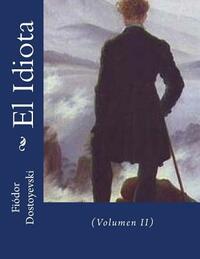You need to sign in or sign up before continuing.
Take a photo of a barcode or cover
This is like every depressing Russian novel, arduous to get through and unnecessarily convoluted and long. Although I did like this book and felt that I gained quite a lot through reading it, it was not as good as other works by Dostoyevsky and I do not believe I will read it again like I am planning to do with War and Peace and The Brothers Karamazov.
This book focuses on 1800s Aristocratic Russian social life and for that reason I found it very tedious. Though there are ways to understand this in the context of present-day life, I didn’t really feel a need to. Though this review does not sound overwhelmingly positive, the backbone of Russian literature is what makes it so good. The characters are complex, thought out, and interesting regarding their motives and day to day life. Every situation is handled incredibly intimately making you invested in the overall story because in some ways it does echo the structure of everyday life, I like exhaustive books for this reason. The shocking moments are almost always unexpected and filled with symbolism and social commentary that are relevant to how we evaluate ourselves to this day even if the in-between is tedious and arduous.
Overall, this is worth a read as it does make you think about goodness in the context of the self-serving aristocratic Russian social circles and it does give you a look into how Dostoyevsky perceived his own epilepsy and touches on his almost-murder in Siberia which is always interesting.
This book focuses on 1800s Aristocratic Russian social life and for that reason I found it very tedious. Though there are ways to understand this in the context of present-day life, I didn’t really feel a need to. Though this review does not sound overwhelmingly positive, the backbone of Russian literature is what makes it so good. The characters are complex, thought out, and interesting regarding their motives and day to day life. Every situation is handled incredibly intimately making you invested in the overall story because in some ways it does echo the structure of everyday life, I like exhaustive books for this reason. The shocking moments are almost always unexpected and filled with symbolism and social commentary that are relevant to how we evaluate ourselves to this day even if the in-between is tedious and arduous.
Overall, this is worth a read as it does make you think about goodness in the context of the self-serving aristocratic Russian social circles and it does give you a look into how Dostoyevsky perceived his own epilepsy and touches on his almost-murder in Siberia which is always interesting.
Dostoyevsky is great at moral meditations, and he really shined in this cerebral type of moral writing in Crime and Punishment, but he falls short in The Idiot. The Idiot centers around the character of Prince Myshkin, a simple-minded Christ-like figure, who's innocence helps him become accepted by the aristocracy in St. Petersburg, but he is ultimately proven to be incompatible in this company due to his epilepsy. My main point to pick against this work is the use of romantic relationships and love in service of making moral points. Dostoyevsky seems to use marriage and love as currency, and there is no heart in the description of romance. Due to this, the book suffers from an emotional coldness. None the less, the narrative is relatively engaging and carries for most of the very long novel.
slow-paced
Plot or Character Driven:
Character
Strong character development:
No
Loveable characters:
No
Diverse cast of characters:
Yes
Flaws of characters a main focus:
Yes
challenging
dark
reflective
slow-paced
Plot or Character Driven:
Character
Strong character development:
No
Loveable characters:
Complicated
Diverse cast of characters:
No
Flaws of characters a main focus:
Yes
dark
mysterious
tense
slow-paced
Plot or Character Driven:
A mix
Strong character development:
Yes
Loveable characters:
Complicated
Diverse cast of characters:
Yes
Flaws of characters a main focus:
Yes
reflective
sad
slow-paced
Plot or Character Driven:
Plot
Strong character development:
Complicated
Loveable characters:
Complicated
Flaws of characters a main focus:
Yes
For a novel centered on what it’s characters say to one another, all the rumors that float about, it’s interesting how much goes unsaid. This felt, to me, the most tragic of Dostoevsky’s works, as Myshkin is adrift in a corrupt world, surrounded by people who would and readily do abuse the pure and the Christlike. And for this he suffers, and it is at times as hard to watch as the prince finds it is to stare at the painting of the beaten, dead body of Christ.
dark
tense
slow-paced
Plot or Character Driven:
Character
Strong character development:
No
Loveable characters:
No
Diverse cast of characters:
No
Flaws of characters a main focus:
Yes
challenging
dark
reflective
slow-paced
Plot or Character Driven:
Character
Loveable characters:
No
challenging
reflective
slow-paced
Plot or Character Driven:
Character
Strong character development:
Complicated
Loveable characters:
Complicated
Diverse cast of characters:
Yes
Flaws of characters a main focus:
Yes




